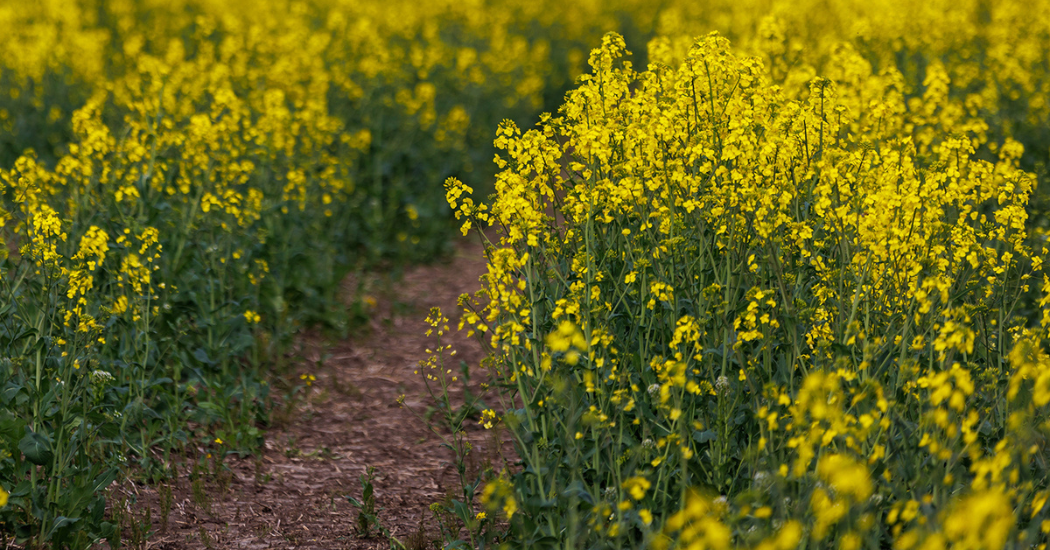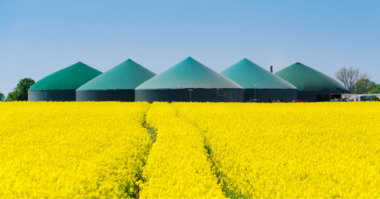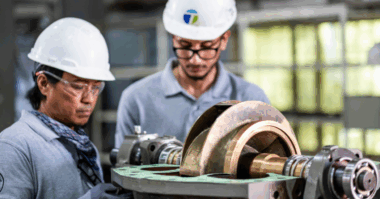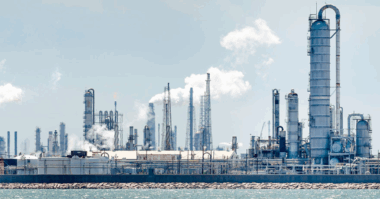In Canada, a major oil producer is undertaking a project to use local canola (rapeseed) oil to create renewable diesel on an industrial scale. At the heart of the plant will be a number of precision pumps from Sulzer that have been designed to handle the challenging process conditions. The expected outcome of the initiative is a reduction in carbon emissions by 3 million tonnes annually, equivalent to cutting the number vehicles on the road by 650’000.
The anticipated output of the facility is more than one billion liters of net zero diesel per year that can be used to power vehicles, trains and industrial boilers. The proposed expansion of the existing refinery is expected to be complete by March 2024.
Challenging processes
Sulzer has been selected to supply a range of pumps for the innovative project that will utilize locally grown crops as a bio-feedstock. In all, the company will supply 26 pumps. Two MSD (BB3) models will be responsible for the high pressure and high temperature naphtha feed application, which is a central part of the catalytic process to break down the canola oil. Two BBT-D recycle pumps and a number of OHH and PRE process pumps, will be delivered with a Duplex stainless steel construction to ensure extended service in the challenging conditions.
Jayesh Kantharia, Senior Account Manager at Sulzer, comments: “We are very proud to play a part in the creation of this innovative renewable diesel complex that has such potential to help reduce carbon emissions. Using local agricultural produce to create low carbon fuel is a great way of maintaining our transport infrastructure while reducing the amount of greenhouse gases involved.”
Long-term reliability
The main pumping systems are designed for 2 x 100% operation, which means that the plant design has no back-up or redundancy facility and therefore the pumps must deliver excellent reliability.
For the pumps, quality starts with the raw materials and foundries used to create the castings. Traceability and a transparent manufacturing process are very important. To that end, the refinery’s representatives will be welcome to visit the Sulzer locations at any point during the production and testing phases.
Jayesh concludes: “As one of the first plants to produce renewable diesel on an industrial scale using these pioneering technologies and processes, the procurement team needed the support of a pump manufacturer that could offer technical expertise and design flexibility. Combined with our knowledge of biofuel applications, we can deliver pumping systems that will help to ensure process reliability and efficiency.”
About Sulzer
Sulzer is a global leader in fluid engineering and chemical processing applications. We specialize in energy-efficient pumping, agitation, mixing, separation, purification, crystallization and polymerization technologies for fluids of all types. Our solutions enable carbon emission reductions, development of polymers from biological sources, recycling of plastic waste and textiles, and efficient power storage. Our customers benefit from our commitment to innovation, performance and quality through our responsive network of 180 world-class manufacturing facilities and service centers across the globe. Sulzer has been headquartered in Winterthur, Switzerland, since 1834. In 2022, our 12’900 employees delivered revenues of CHF 3.2 billion. Our shares are traded on the SIX Swiss Exchange (SIX: SUN). www.sulzer.com
The Pumps Equipment division specializes in pumping solutions specifically engineered for the processes of our customers. We provide pumps, agitators, compressors, grinders and screens developed through intensive research and development in fluid dynamics and advanced materials. We are a market leader in pumping solutions for water, oil and gas, power, chemicals and most industrial segments.
www.sulzer.com




